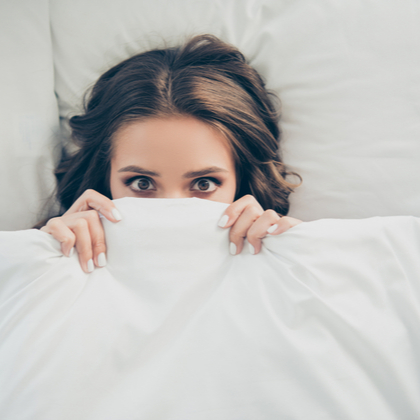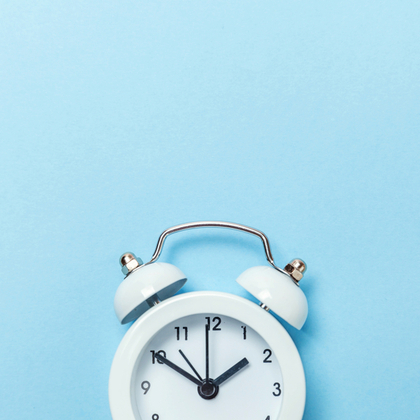
Based on all the scientific data, exercise is essential to good overall health. It supports our cardiovascular system, metabolic function, and emotional wellbeing, to name a few. Exercise is also one of the best tools we have for sleep. We take a look below.
How does exercise affect your sleep?
Exercise targets many different areas of health, which indirectly support sleep. Some have even called it a ‘magic bullet’ for rest and relaxation. However, the timing of your workout is key, since the body usually needs 1 to 2 hours after exercise to prepare for sleep.
Exercise supports mood
Sleep and exercise have a bidirectional relationship. Mood changes, such as stress and anxiety, often affect sleep. And poor sleep can worsen mental health. However, exercise can provide a valuable buffer for both mood and sleep.
Not only does physical activity reduce stress hormones like cortisol and adrenaline, but it also triggers the release of endorphins – chemicals that boost mood and relieve pain – potentially leading to better sleep (1).
However, it’s possible to have too much of a good thing. Overtraining may elevate cortisol levels, which can lead to changes in sleep patterns, so moderation is key (2).
Exercise increases your homeostatic sleep drive
Physically demanding workouts can also increase your need for high-quality rest and make it easier to fall asleep.
Exercise accelerates the build-up of homeostatic sleep drive – the pressure to sleep that gets stronger the longer you stay awake – which means you’re more likely to fall asleep quicker (2).
Exercise raises your core body temperature
Another way exercise supports sleep is through its body-heating effects. Working out increases core body temperature – somewhat similar to a hot shower. After about 30 to 90 minutes, core body temperature starts to fall – and this decline facilitates sleepiness.
Exercise promotes healthy weight management
Regular exercise can also reduce the risk of excessive weight gain, which may lead to obstructive sleep apnoea (OSA), where the walls of the throat relax and narrow during sleep, interrupting normal breathing (3).
Studies suggest around 60 per cent of OSA cases are linked to obesity (4). Exercise is one of the best ways to prevent this.
Should I work out before bed?
Working out before bed has long been a hot topic of discussion. As mentioned, exercise elevates your core body temperature, which signals to your body that it should be awake. So, if you work out too close to bedtime, you won’t give yourself enough time to experience the post-exercise temperature dip that supports sleep.
Exercise also releases naturally stimulating endorphins. You need around 1 to 2 hours before bed to allow the endorphin levels to ‘wash out’.
However, despite the biological responses to exercise, some people find the timings of their workouts don’t matter. If you enjoy moving just before bed and notice it doesn’t affect your sleep, that’s fine.
When is the best time to exercise to support sleep?
Ultimately, you know your body best, so always exercise in a way that serves your needs and lifestyle. That said, as a general rule, we would recommend limiting high-intensity workouts to the morning or afternoon, which will support sleep quality and quantity for most people.
Many individuals enjoy incorporating gentle mind-body exercises into their wind-down routine before bed. Slow, mindful practices like yoga and Pilates activate the parasympathetic nervous system – responsible for the ‘rest and digest’ state – which can help the body and mind prepare for sleep.
How much exercise do I need?
Moderate activity is all you need to support your sleep. Research suggests adults who exercise for at least 30 minutes daily sleep an average of 15 minutes longer than those who don’t exercise (5).
If half an hour each day seems daunting, you could always break this up into bitesize chunks to make it more manageable. Think 10 minutes of yoga in the morning, 15 minutes of running at lunch, and 5 minutes of stretching before bed.
Find out more
If you found this piece on exercise and sleep useful, you can find similar guidance on our dedicated Sleep Health Hub. Alternatively, please get in touch with our team of expert Nutrition Advisors, who are on hand to provide free, confidential advice via email, phone, and Live Chat*.
*Subject to cookie consent
References:
-
Stress relief: The role of exercise in stress management. Jackson, E.M. (2013). ACSM’s Health & Fitness Journal, [online] 17(3), 14–19.
-
Diagnosis and prevention of overtraining syndrome: an opinion on education strategies. Kreher JB. (2016) Open Access J Sports Med. 7:115-22.
-
Module 2. Sleep Pressure: Homeostatic Sleep Drive NIOSH CDC. www.cdc.gov. (2020). [online] Available at: https://www.cdc.gov/niosh/work-hour-training-for-nurses/longhours/mod2/11.html.
-
Sleep apnoea. NHS (2019). [online] NHS. Available at: https://www.nhs.uk/conditions/sleep-apnoea/.
-
The International Classification of Sleep Disorders – Third Edition (ICSD-3). American Academy of Sleep Medicine. (2014). Darien, IL.
-
The Effect of Physical Activity on Sleep Quality and Sleep Disorder: A Systematic Review. Alnawwar MA, Alraddadi MI, Algethmi RA, Salem GA, Salem MA, Alharbi AA. (2023) Cureus. 15(8):e43595.
Related Posts

Do I Have Symptoms Of Insomnia Or Just Trouble Sleeping?

Insomnia Treatments: Natural Remedies To Help You Fall Asleep

Why Am I Always Tired? Signs Of Poor Sleep Hygiene Explained

Olivia
Olivia Salter has always been an avid health nut. After graduating from the University of Bristol, she began working for a nutritional consultancy where she discovered her passion for all things wellness-related. There, she executed much of the company’s content marketing strategy and found her niche in health writing, publishing articles in Women’s Health, Mind Body Green, Thrive and Psychologies.
View More
